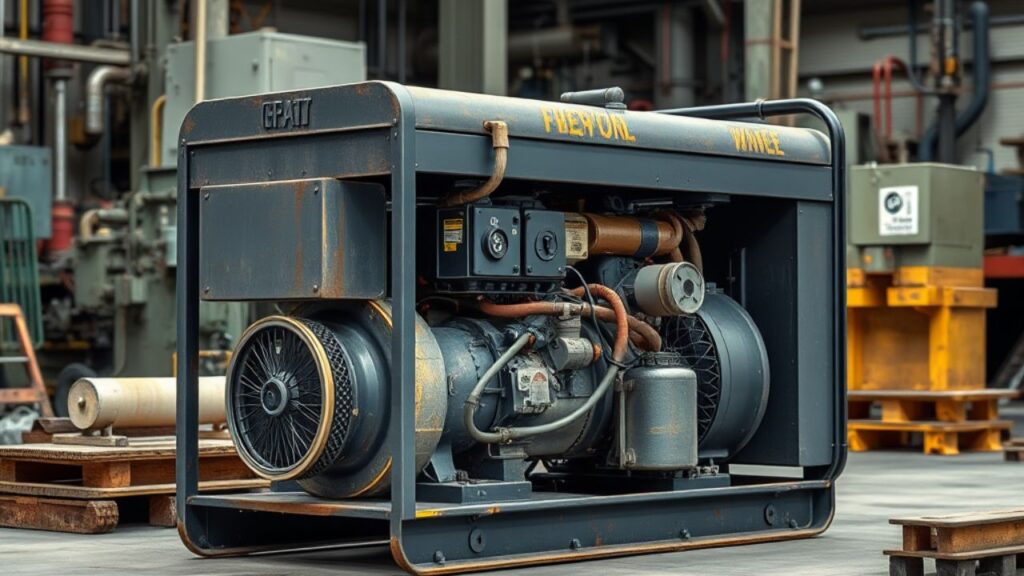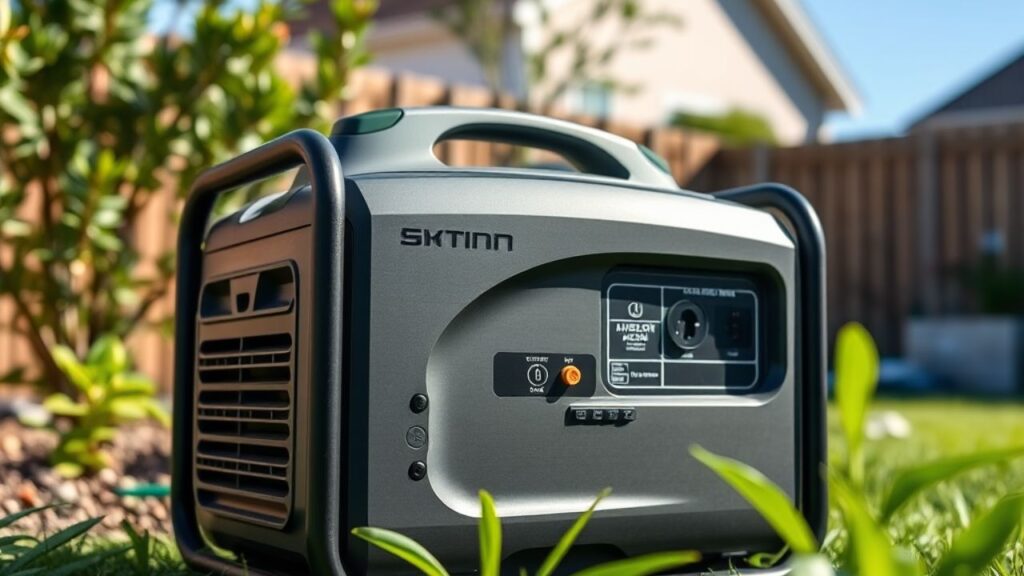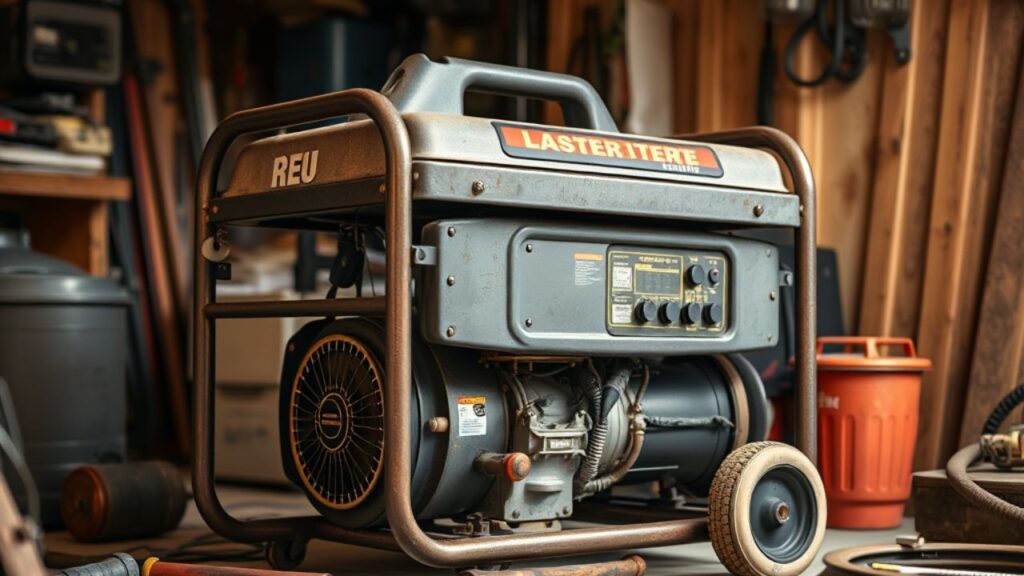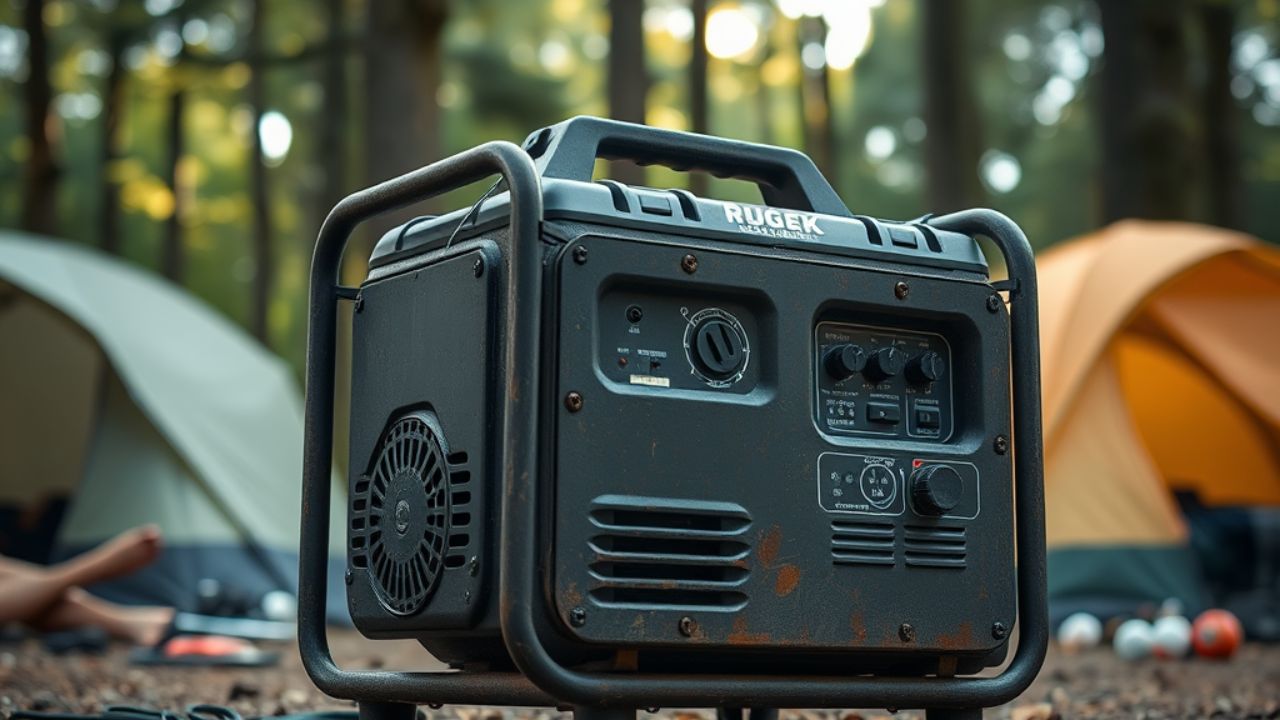Designed to supply electrical energy for several uses, a 20 kW electric engine is a strong piece of equipment. Its capacity to create up to 20 kilowatts of power qualifies it for both household and business use. When a power outage occurs, this generator can run basic appliances; it may also act as a backup for companies or even assist building sites needing temporary electricity. This will let you know what kind of a 20 kW electric generator is suitable for your use and knowing it’s operation and uses.

How Does a 20 kW Electric Generator Work?
The idea behind running a 20 kW electricity generator is to convert mechanical power to electricity. The combustion engine powered by these generators usually runs the gasoline, diesel or natural gas. Running an engine rotates the rotor of the generator, producing a magnetic field. This generates power by causing an electric current in the stator windings. Designed to function effectively, most 20 kW generators produce consistent power production while using little fuel. Knowing this process allows one to value the technology underlying some necessary instruments.
Benefits of Using a 20 kW Electric Generator
There are various benefits in running a 20 kW electric generator. Above all, it guarantees that your house or company stays running during outages by offering a consistent source of energy. Those who depend on power for refrigeration, heating, or medical equipment particularly need this. Larger homes or small companies would find these generators perfect as they can support several appliances at once. They also let users create their own electricity, therefore enabling energy independence and free from depending just on the grid. For anyone looking for consistent electricity, a 20 kW electric generator makes sense overall.
Common Applications of 20 kW Electric Generators
Flexible and suitable for many environments are 20 kW electric generators. During outages in homes, they may run lighting, heating systems, and refrigerators among other necessary items. These generators give companies backup power so they may keep running and safeguard delicate machinery. Portable 20 kW generators also help building sites as they provide energy for equipment and illumination in far-off places. They can come in handy for outdoor parties or weddings when music systems and catering tools depend on electricity. Their broad spectrum of uses qualifies them as a great benefit for people and businesses alike.
Choosing the Right 20 kW Electric Generator
A 20 kW electric generator should be chosen with consideration for a number of elements. First, figure the wattage of the appliances you intend to operate to determine your power consumption. This will assist to guarantee that the generator can meet your specifications. Next take into account the kind of fuel you would like; natural gas, diesel, and gasoline all have advantages and drawbacks. Depending on your particular need, also search for characteristics such mobility, noise level control, and automated start. Furthermore, helping you to make the greatest decision for your circumstances is reading client evaluations and consulting professionals.

Maintenance Tips for 20 kW Electric Generators
The lifetime and performance of your 20 kW electric generator depend on proper maintenance. Check the oil levels often first, then change it per manufacturer’s advice. To guarantee best engine performance and airflow, either clean or substitute the air filter. But in order to avoid contamination, check the fuel system for leaks and maintain the fuel level in the fuel tank fresh. Even if the generator is not in use, run the generator also to test operation and keep the engine oiled. Using these maintenance guidelines can help you guarantee dependable operation and save expensive repairs.
Safety Precautions When Using a 20 kW Electric Generator
Running a 20 kW electric generator should always give safety first importance. The first check is to make sure that the generator is in a safe well ventilated area so they avoid the potentially fatal carbon monoxide. This must always be done with heavy-duty extension cables that are capable of handling the generator’s power. See a certified electrician to install a transfer switch if you plan to connect the generator straight to the electrical system of your house. Nor should you run the generator indoors or in confined areas. By following these safety rules, you and your family will be better protected when running your generator.
Cost Considerations for 20 kW Electric Generators
A 20 kW electric generator’s cost will vary greatly depending on manufacturer, fuel type, and features among other things. A decent generator will often cost anywhere from $3,000 to $10,000. Though the initial outlay seems large, take into account the long-term savings and peace of mind power interruptions bring. Budget for your generator keeping in mind also the expenses of installation and maintenance. Investigating many models and pricing comparisons will enable you to choose the greatest value for your requirements.
Environmental Impact of 20 kW Electric Generators
Given more people are looking for environmentally friendly energy sources, the environmental effect of 20 kW electric generators is of great relevance. Older diesel and gasoline generators can add to greenhouse gas emissions and air pollution. Many manufacturers are also providing propane and natural gas choices, though, which often have a smaller environmental impact. Furthermore take into account employing modern generators with inverter design, which run more effectively and provide cleaner energy. Knowing the environmental effect of your generator will enable you to choose more sensibly.

The Future of 20 kW Electric Generators
Future of 20 kW electric generators is bright as long as technology keeps developing. More environmentally friendly generators are made possible by developments in renewable energy sources and battery technologies. Rising in popularity as a sustainable substitute for conventional fuel-based versions, solar-powered generators Smart technology is also being included into generators so consumers may track energy use and performance via mobile apps. These developments not only improve convenience but also fit the increasing need for greener energy sources.
Difference Table
| Feature | Gasoline Generator | Diesel Generator | Natural Gas Generator | Propane Generator |
| Fuel Type | Gasoline | Diesel | Natural Gas | Propane |
| Efficiency | Moderate | High | High | Moderate to High |
| Power Output | Up to 20 kW | Up to 20 kW | Up to 20 kW | Up to 20 kW |
| Operating Cost | Higher due to fuel price | Generally lower than gasoline | Lower, stable pricing | Moderate, varies with market |
| Noise Level | Typically louder | Moderate noise | Quieter than gasoline | Generally quiet |
| Maintenance Needs | Regular oil changes | Less frequent maintenance | Moderate maintenance | Regular checks for leaks |
| Environmental Impact | Higher emissions | Higher emissions | Lower emissions | Lower emissions |
| Portability | Often lighter | Heavier | Heavier, needs gas line | Portable, often lighter |
| Starting Method | Manual or electric start | Electric start | Electric start | Electric start |
Conclusion
Ultimately, in distant areas or during outages, investing in a 20 kW electric generator will give you dependable electricity and piece of mind. Choosing the correct generator for your particular demand is crucial given the several uses, advantages, and choices at hand. Understanding how these generators operate, their maintenance needs, and safety considerations helps you to guarantee a suitable and efficient power source. Maintaining knowledge about fresh advancements will enable you to make the optimal decision for your energy use as technology develops. Not only a tool, a 20 kW electric generator is a great advantage that improves your way of life and guarantees your readiness for every scenario.
FAQ’s
1. Will a 20 kW generator run a house?
With whole-house backup electricity for many households, the Guardian A set 3-Phase 20 kW Reserve Generator is among the most powerful air-cooled generators available today.
2. How much does a 20kW standby generator cost?
Typical 20kW generators (with ATS) range in cost from little under $6,000 for a Cummins Generator. For good reason, homeowners are finding increasing favor in the Cummins RS20A Home Generator. Furthermore among the quietest air-cooled generators available is this one.
3. Will a 22Kw generator run my house?
The dependability and long-term peace of mind provided much exceed the initial Generac 22Kw full home generator cost. In an emergency it immediately runs all your basics—that is, your entire house. Generac 22Kw whole house generator will cope with “basic” requirements for a 3,000 to 4,000 square foot abode.
4. How long will a 500 gallon propane tank run a 20kW generator?
With a 20kW engine one 500 gallon propane tank will run it around 4 to 9 days, (about 196 hours). This calculation makes normal generator efficiency and a modest to high electrical load assumption. Load, generator performance, and weather will all affect the precise length.
5. How long does a 20 kW generator last?
An average operating period of a 20 KW generator running from a 1,000 gallon tank is 8 to 16 days. The run time of a generator will be influenced, nonetheless, by several factors.
